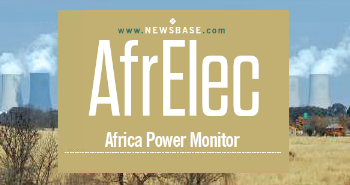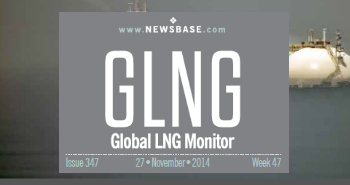Eskom, Sasol sign MoU on exploring LNG potential to mitigate looming gas shortage in South Africa
South Africa’s state-owned power utility Eskom has signed a Memorandum of Understanding (MoU) with Sasol, an integrated chemicals and energy company, on exploring liquified natural gas (LNG) potential to mitigate imminent gas shortage in South Africa.
The MoU sets the path to explore and research future LNG requirements, the two companies said in a joint statement on September 20. The collaboration also aims to find a solution for long-term gas users who require supply security beyond this decade.
According to the statement, the collaboration aims to assess the necessary LNG volumes and infrastructure required to establish a viable LNG import market in South Africa, supported by intergovernmental cooperation where needed. The initiative focuses on gas-to-power generation to provide reliable base load electricity, positioning gas as key to re-industrialisation while unlocking global LNG resources for market supply.
Furthermore, it aims to enhance South Africa’s energy mix, supporting the country’s energy transition and decarbonisation goals. The MoU between Sasol and Eskom, backed by Minister of Electricity and Energy Kgosientsho Ramokgopa, initiates research and planning for the project.
“We have made it clear that we are serious about LNG solutions for the country, and that our demand for gas across both industrial and energy frontiers will unlock these solutions,” Ramokgopa said in the statement.
“This collaboration between our two energy champions – one public, one private – will provide a data-driven and commercially sound basis for gas-fed industrialisation and for us to explore the well-worn path to lower carbon energy that the global north has already taken by scaling gas-to-power.”
The minister underscored the role of gas as the second-largest contributor to global electricity production. He noted that “many countries shift from coal to gas in their energy mix to enable positive implications for climate change, as gas typically emits less CO2 per unit of energy.”
The MoU, aligned with South Africa’s Gas Master Plan (GMP), will explore sourcing gas domestically, from the Southern African Development Community (SADC) region, and other African nations, as well as evaluating long-term LNG contracts. This will support Eskom’s future plans to repower and convert coal power stations to gas. The MoU also aims to establish an LNG value chain in South Africa through engagement with other state entities.
Sasol, as part of its revised gas strategy, is working with Eskom and other partners to secure future LNG supplies, the statement said. Research from the first phase of the Sasol-Eskom collaboration will inform key stakeholders and investors about the best opportunities for South Africa’s energy market, while addressing the challenges of long-term LNG import commitments.
“As a leading energy player in South Africa, we are excited to collaborate with Eskom to transform the regional energy landscape,” said Sasol’s president and CEO Simon Baloyi. “By leveraging our combined technical, operational and project execution expertise, we are committed to enhancing regional energy security and driving development. In doing so, we will unlock new growth opportunities and help drive the transition to a more sustainable energy future for our country,” he added.
There is a clear alignment between Sasol and Eskom in exploring LNG supply, the statement said. According to Eskom Group CEO Dan Marokane, both companies have a great deal of experience as the two largest users of coal in South Africa. The collaboration could accelerate the climate change transition responsibly and address the imminent gas supply shortfall, Marokane noted.
Qatar was at the top of the list of countries South Africa could approach to source LNG imports, Minister Ramokgopa said at a news conference, Reuters reported on September 20.
“Qatar is top of the food chain because of the historic relations that Sasol enjoys with Qatar, and also the amount of reserves that they have,” Ramokgopa was quoted as saying.
However, Sasol and Eskom did not provide information on specific timelines or potential joint projects at the time, writes the news agency.





Follow us online